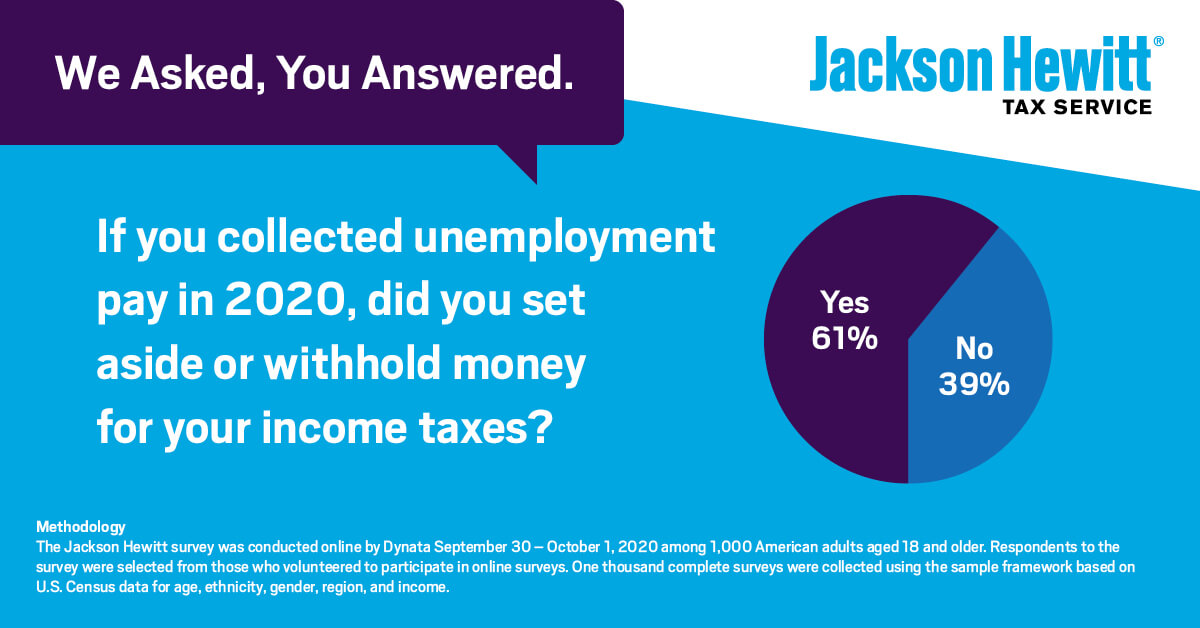- Find an office
-
File Your Taxes
 Find a Location
Find a Location -
Resolve Tax Issues
 Resolve Tax Issues
Resolve Tax IssuesResolve Tax Issues
-
Tax Resources
 See all Tax Help
See all Tax HelpTax Tools
Tax Tips & Resources
- Where's My Refund
- Refund Advance
- Promotions & Coupons
- Hiring Local Jobs!
- Careers
- Search
- Contact Us
- Feedback
-
 Log in | Sign up
Log in | Sign up

JH Accounts
|
|
Oh no! We may not fully support the browser or device software you are using ! To experience our site in the best way possible, please update your browser or device software, or move over to another browser. |
Covid-19 Impact
Top 3 Tax Tips for Unemployment Benefits
The pandemic has left many people jobless, furloughed, and uncertain on where their next paycheck would come from. Unemployment benefits have been claimed at a record high, which has helped support those hit hardest during the pandemic. But what does this mean for these taxpayers? Anyone who received unemployment benefits will have to pay taxes on the benefits they received.
1. Unemployment Benefits Are Taxable
By law, unemployment benefits are taxable and must be reported to the IRS on your tax return. However, according to a recent Jackson Hewitt survey, 39% of people do not know that unemployment benefits are taxable. Taxable benefits include any of the special unemployment compensation authorized by Congress during national disasters. On the other hand, gig income (such as Uber, Lyft and Etsy) at any amount is taxable on your tax return.
Furthermore, according to the survey, 49% of single people and 56% of taxpayers under the age of 30 do not know unemployment benefits are taxable. This puts younger taxpayers at a severe disadvantage since they historically do not have expendable income or large savings to cover unexpected income taxes.

2. State Income Tax Varies for Unemployment Benefits
Anyone who received unemployment benefits must pay federal income tax on those benefits. However, state laws vary on whether unemployment recipients have to pay state income tax on the money they received. Some states require recipients to pay state income tax, while others say unemployment benefits are income tax exempt.
3. Set Money Aside to Cover Unexpected Unemployment Benefit Taxes
Taxpayers who received unemployment benefits and did not withhold any federal or state income tax should consider setting money aside now to cover those taxes for their tax return. According to Jackson Hewitt’s survey, this may be the case for many Americans this year since 61% of those who collected unemployment benefits have not withheld or set aside money for their income taxes. As a result, those living paycheck to paycheck should prepare to receive a much smaller tax refund or no refund at all this tax season.
Contact your local Jackson Hewitt Tax Pro today to help you start preparing for your tax return.
Survey Methodology
The Jackson Hewitt survey was conducted online by Dynata September 30 – October 1, 2020 among 1,000 American adults aged 18 and older. Respondents to the survey were selected from those who volunteered to participate in online surveys. One thousand complete surveys were collected using the sample framework based on U.S. Census data for age, ethnicity, gender, region, and income.
When every dollar matters, it matters who does your taxes™
-
TRUSTED GUARANTEES.
Be 100% certain about your money & your taxes, year after year.
-
NATIONAL PRESENCE. LOCAL HEART.
We’re in your neighborhood & inside your favorite Walmart store.
-
40+ years. 60+ million returns.
The kind of trusted expertise that comes with a lifetime of experience.





